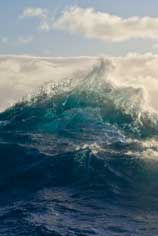 The SCAR Krill Action Group (SKAG) and ICED (Integrated Climate and Ecosystem Dynamics) are jointly organizing a session at the 2022 Ocean Sciences Meeting. If you plan to attend the 2022 Ocean Sciences Meeting in-person or online, please consider submitting an abstract to the session described below.
The SCAR Krill Action Group (SKAG) and ICED (Integrated Climate and Ecosystem Dynamics) are jointly organizing a session at the 2022 Ocean Sciences Meeting. If you plan to attend the 2022 Ocean Sciences Meeting in-person or online, please consider submitting an abstract to the session described below.
Session HL09 – The role of Southern Ocean ecology in the Earth System: integrating across scales, disciplines, and methods
Description – The Southern Ocean is a key component of the Earth System, influencing global climate processes and supporting unique biological diversity, international fisheries and tourism. Over the coming decades, major shifts in Southern Ocean ecosystems are expected in response to multiple stressors including climate-driven change and harvesting. Yet, the intrinsic environmental drivers of Southern Ocean ecosystem dynamics are not well-understood, thereby introducing uncertainty into projected responses to climate change. Thus identifying and addressing priority research challenges for sampling and integrating modelling methods are essential to reveal the impact of local ecological processes at the circumpolar scale. This requires a detailed understanding of key species, including Antarctic krill which has a dominant ecological role and is also the target of an international fishery. This session is intended to bring together innovative approaches in Southern Ocean ecological research, with an emphasis on Antarctic krill, to improve ecosystem models that represent species dynamics across a range of spatial (regional to circumpolar), temporal (inter-annual to decadal) and organisational (individuals to populations) scales. The scope of this session includes biogeochemistry, food-web interactions, resilience, impacts and feedbacks within the Earth System, conservation, and sustainable resource management. We welcome presentations that highlight field observations, experimental work and modelling of key species, covering aspects such as population dynamics across different space and time scales (e.g. life cycle, past and present distribution and abundance), environmental drivers of distribution (e.g. regional and global models) and future projections of distribution in response to environmental change. Studies that promote collaboration across scientific disciplines and generate links between scientists and fisheries managers for improving management are strongly encouraged.
